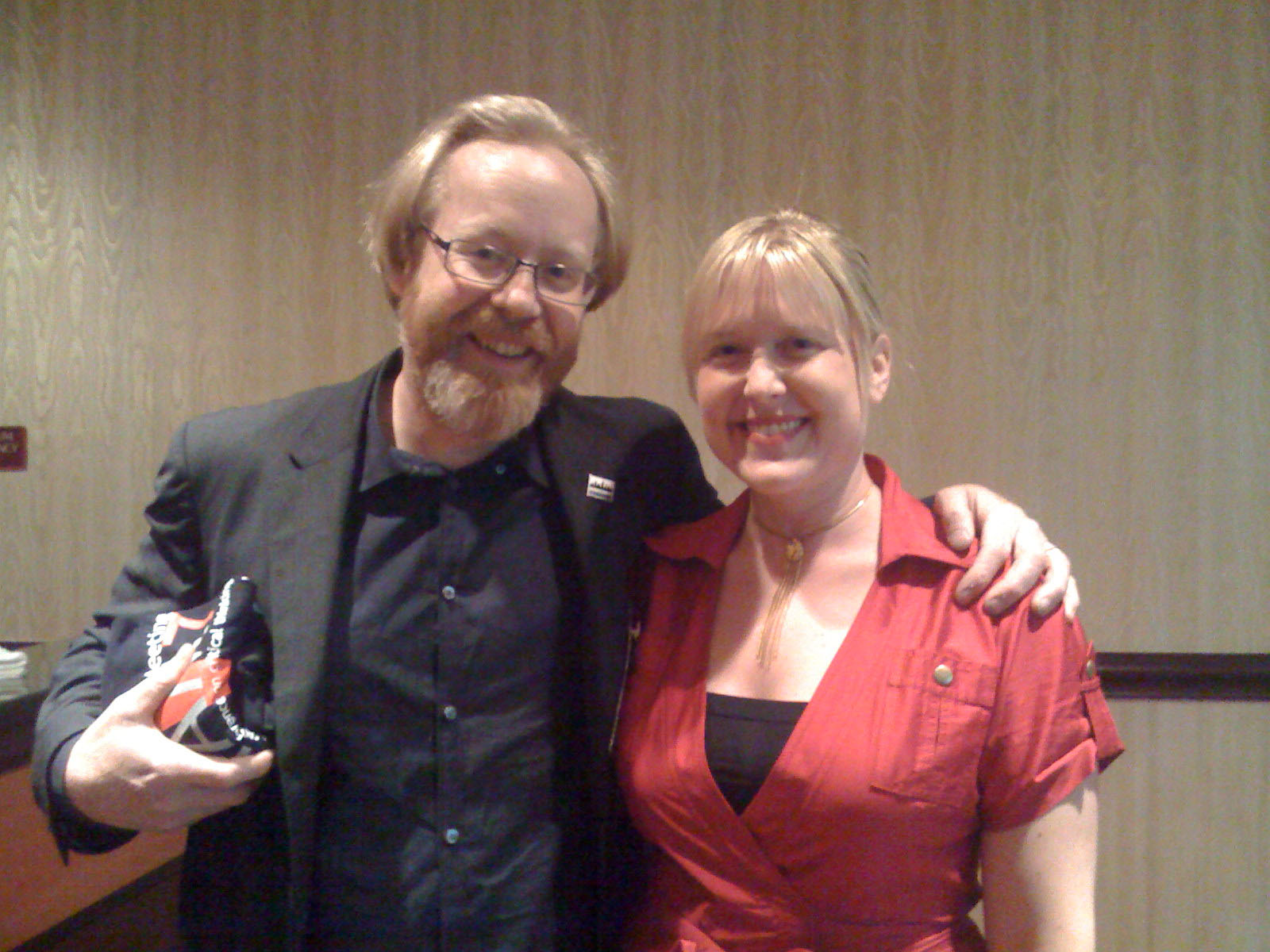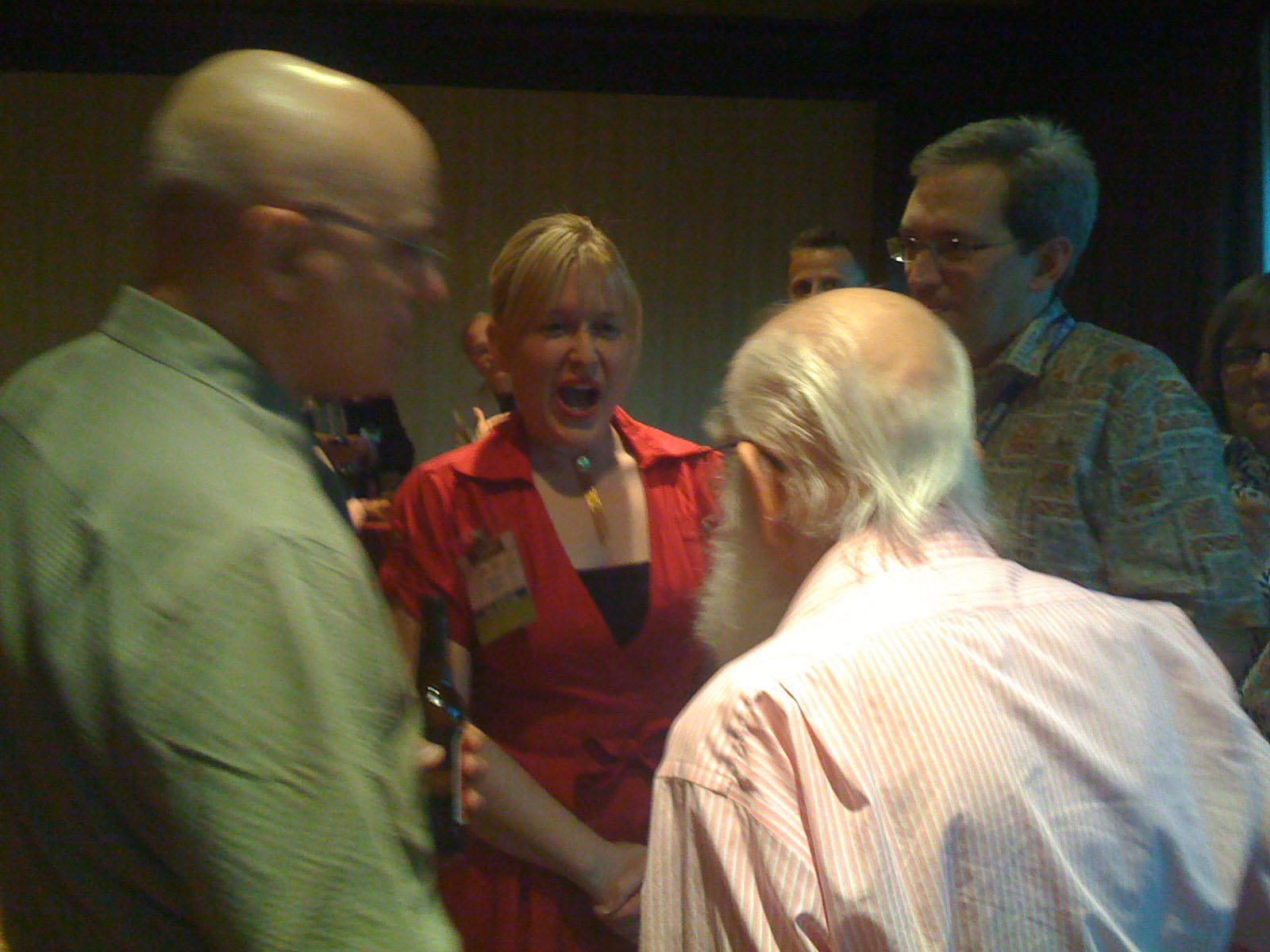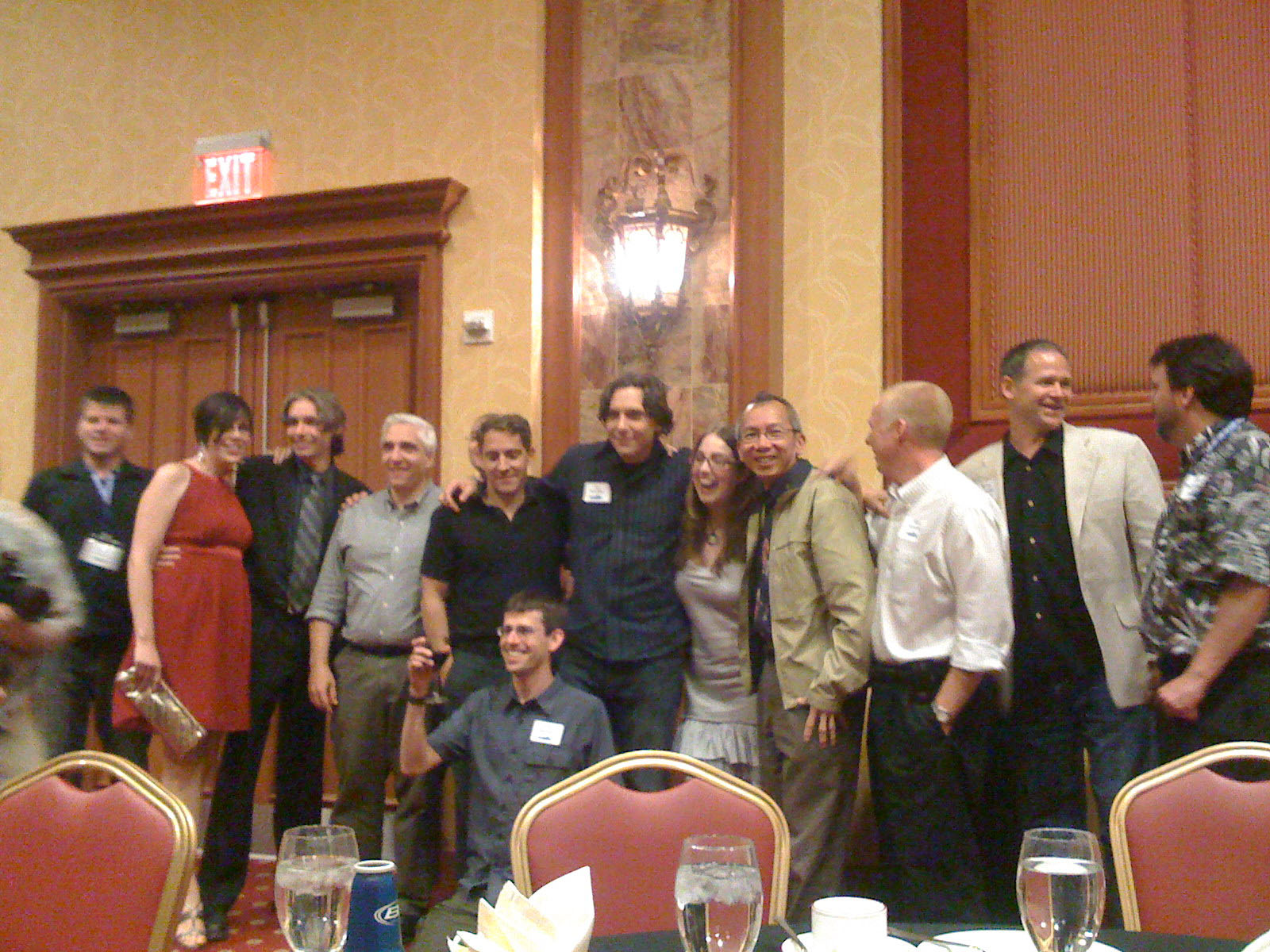December 31st, 2009 by Dr. Val Jones in Health Policy, Opinion, Quackery Exposed
9 Comments »

As 2009 comes to an end, it seems that everyone is creating year-in-review lists. I thought I’d jump on the list band wagon and offer my purely subjective top 5 threats to rational thought in healthcare and medicine.
Of course, it strikes me as rather ironic that we’re having this discussion – who knew that medicine could be divorced from science in the first place? I thought the two went hand-in-hand, like a nice antigen and its receptor… and yet, here we are, on the verge of tremendous technological breakthroughs (thanks to advances in our understanding of molecular genetics, immunology, and biochemistry, etc.), faced with a growing number of people who prefer to resort to placebo-based remedies (such as heavy-metal laced herbs or vigorously shaken water) and Christian Science Prayer.
And so, without further ado, here’s my list of the top 5 threats to science in medicine for 2009 and beyond: Read more »
*This blog post was originally published at Science-Based Medicine*
December 28th, 2009 by David Kroll, Ph.D. in Better Health Network, Humor, Opinion
No Comments »

. . .or a spread in Playgirl.
Huh?
Orac has a nice essay today for your Christmas Eve reading about a USA Today article yesterday by Liz Szabo that called out celebrities for their pseudoscientific proclamations and advice entitled, “Are celebrities crossing the line on medical advice?”
So that’s where I came up with this thought: it would be great if some folks who talked science-based sense became celebrities so they’d at least have the same platform to counter people like Jenny McCarthy. On his comment thread, I suggested that we can only hope that Orac someday gets a movie deal and acquires the public celebrity that some of these jokers have. Read more »
*This blog post was originally published at Terra Sigillata*
November 28th, 2009 by Dr. Val Jones in Expert Interviews, Opinion
No Comments »

Laurie Edwards has a rare chronic disease called primary ciliary dyskinesia. Her symptoms are quite similar to those associated with cystic fibrosis, and her young life has been punctuated by numerous hospitalizations, physical limitations and the occasional near-death experience. She is a remarkably upbeat woman, and attributes her self confidence and optimistic outlook to her loving friends and family.
Laurie is part of the patient blogging community online. She reads physician blogs with interest, and wants to protect others like her from snake oil and misinformation. She recently interviewed me about my pro-science views for a new book that she’s writing. People like Laurie play a critical role in accurate health communication, and I welcome the chance to discuss science-based medicine with them. Here are some excerpts from our chat: Read more »
*This blog post was originally published at Science-Based Medicine*
July 11th, 2009 by Dr. Val Jones in Announcements
2 Comments »
I’m in Las Vegas at the Science Based Medicine (SBM) conference – where I helped to explain the reasons why science is critical in separating fact from fiction. Following the SBM event, critical thinkers from across the US and Canada gathered to discuss myth-busting in various forms… I really enjoyed meeting up with SBM bloggers, Adam Savage (from the hit TV show, Mythbusters), Jennifer Ouellette (a physicist and Director of The Science and Entertainment Exchange at the National Academy of Sciences), astronomer blogger Phil Plait, and The Amazing Randy – a magician devoted to exposing medical fraud and the tricks of the trade.
Blogging will be a little light this weekend… please enjoy the pics! (I did get to interview both Adam Savage and James Randi… so stay tuned for those!)

Adam Savage (Mythbusters) & Dr. Val

I'm amazed by Randi

The Novella Brothers & Friends
July 9th, 2009 by Dr. Val Jones in Book Reviews, Medblogger Shout Outs, Opinion
2 Comments »
Francis Collins, M.D., Ph.D., is probably best known for his leadership of the Human Genome Project, though his discoveries of the Cystic Fibrosis, Huntington’s, and Neurofibromatosis genes are also extraordinary accomplishments. Dr. Collins is a world-renowned scientist and geneticist, and also a committed Christian. In his recent best-selling book, The Language Of God, Dr. Collins attempts to harmonize his commitment to both science and religion.
Some critics (such as Richard Dawkins) have expressed reservations about Dr. Collins’ faith, wondering if it might cloud his scientific judgment. Since Collins was rumored to be the most likely candidate for directorship of the NIH (and he was nominated for the position yesterday, but must be confirmed), and because I wanted to know if Dawkins et al. had any reason for concern, I decided to read The Language Of God.
First of all, Christians are a rather heterogeneous group – with a range of viewpoints on evolution, science, and the interpretation of Biblical texts. On one extreme there are Christians (often referred to as “young earth creationists” or simply “creationists”) who believe in an absolutely literal interpretation of the Genesis story, and see evolution as antithetical to true faith. Dr. Collins suggests that as many as 45% of Christians may actually be in this camp.
On the other end of the spectrum are Christians who embrace evolution, accept and promote scientific thinking, and understand the Bible to be a blend of poetry, allegory, and historical literature. While they see the Genesis account of creation as poetic, the Gospel accounts of Jesus’ life and teachings are considered to be more literal.
Collins’ views are very representative of the scientific end of the Christian spectrum. In fact, he spends several chapters attempting to help creationists embrace evolution. He takes great pains to explain how irrational it is to deny the evidence we have (both from a genetic, and an archeological/basic science perspective) for evolution. He argues that evolution is not an enemy of faith, but rather an enlightening look at how God’s creative process works.
Collins also takes on “Intelligent Design (ID),” exposing it as a PR play, not a true scientific theory. He suggests that ID is an “argument from personal incredulity” expressed in the language of mathematics, biochemistry, and genetics. Furthermore, Collins explains that ID proponents have confused the unknown with the unknowable – there is no current “irreducible complexity” that cannot be explained by evolutionary theory. We don’t need a “God of the gaps” to explain what we’ve yet to learn.
One of the more interesting parts of the book is Dr. Collins’ mathematical review of the incredibly low odds of the right blend of atoms/elements and the correct rate of expansion of the universe to occur by chance. He argues that certain atomic particles needed to be present in unequal and varying amounts at the earliest moment of the Big Bang to produce – eventually – the right conditions for life as we know it. He uses this analogy: it’s possible that a poker player could randomly obtain a straight flush in 50 consecutive hands. However, a more plausible explanation is that he’s cheating. In the same way, the universe could have come into being by coincidence, but it’s more likely that it was a coordinated event.
Collins’ argument for the existence of God is compelling to me. His explanation of why he chose to become a Christian is a little less so. Collins often resorts to lengthy quotes of C.S. Lewis in lieu of his own theological rationale – but I suppose we can forgive him for this. He is first and foremost a scientist, not a theologian, and his book simply reflects that fact. [Those interested in a more compelling theological rationale for Christianity might try Timothy Keller’s, The Reason For God: Belief In An Age Of Skepticism.]
In summary, Collins claims to believe in “theistic evolution.” He says that few people have heard of it because it harmonizes science and religion – and “harmony is boring” and doesn’t have a PR agenda. Nonetheless, he finds it internally consistent and intellectually satisfying. The material world is best understood through scientific inquiry, the spiritual world cannot be tested or understood by science. Matters of conscience, morality, and a yearning for answers to questions that may not be resolved empirically (What happens to us after death? What existed before the Big Bang? Is there a soul?) are matters best left for religion.
After reading The Language Of God, I feel confident that Collins is a reasonable person. He embraces science more successfully than many people of faith, and I didn’t notice anything about his beliefs that would make me question his ability to lead the NIH in true, scientific inquiry. In fact, The Language Of God may embolden other Christians to join the Science-Based Medicine movement by offering them a rational way to allow faith and science to co-exist. I hope that scientists who hold atheist or agnostic religious views will embrace this small group of evolutionary theists as religious moderates who fully support scientific orthodoxy.















